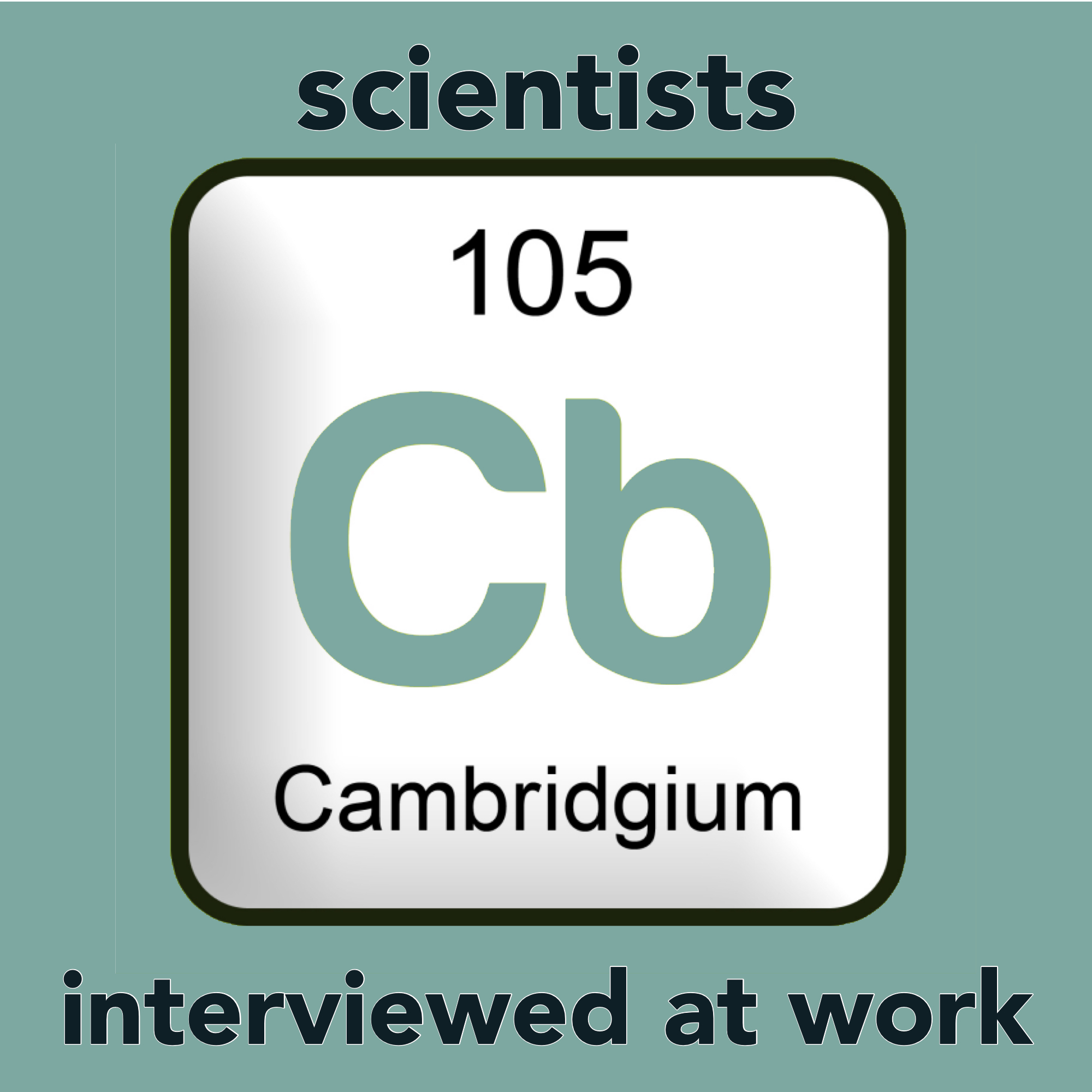Episodes
Published 11/19/18
Published 11/11/18
Published 11/11/18
With many different types of guitars, we find out how much more is involved in the sound we get from various models, and whether or not this impacts on the price. Are we just... The post scientist 67: the guitarist – guitar types & quality (2014) appeared first on Roger Frost: science, measuring and automation.
Published 08/07/18
Published 08/05/18
The Laboratory of Molecular Biology in Cambridge is credited for landmark discoveries and cutting-edge techniques. This podcast offers an overview of what the LMB do. On the occasion of the Medical Research Council centenary, and a visit by... The post scientist 64: the molecular biologist – Hugh Pelham at MRC LMB Cambridge (2014) appeared first on Roger Frost: science, measuring and automation.
Published 08/04/18
Published 08/03/18
Published 08/02/18
CAMGRAIN is a farmer-owned central storage co-operative, set up 20 years ago to provide facilities for storing, analysing, cleaning and distributing grain to the food industry such as those who mill, brew and make... The post scientist 61: the grain business manager – Andrew Wingate wheat and flours (2014) appeared first on Roger Frost: science, measuring and automation.
Published 07/31/18
Published 07/02/18
We talk to Dr Marcus Yeo about how human cell production benefits drug development. Dr Yeo is from DifiniGEN, a Cambridge company that grows liver cells used to test if new drugs are harmful. Their technology comes from the Nobel … Continue reading →
Published 10/12/16
We visit the Centre for Atmospheric Science in Cambridge University and speak to Professor John Pyle about modelling the lower atmosphere using supercomputers. Follow-up link: Centre for Atmospheric Science atm.ch.cam.ac.uk See also ‘The earth scientist’, interview 41 in this series … Continue reading →
Published 10/05/16
Our guest Anmol Sood of Hildago was on the team that monitored Felix Baumgartner health as he jumped from the edge of space and reached a speed of over 800 mph. Based in Cambridge UK, the company makes the Equivital … Continue reading →
Published 09/28/16
Dr Jenny Barnett of Cambridge Cognition speaks about the neuropsychological tests they develop including one designed for the early detection of dementia. Their test is to be used in a government-funded field trial. And Jenny has advice for how to … Continue reading →
Published 09/21/16
The Cambridge Science Centre is a really useful educational attraction in the city centre. Founder Dr Chris Lennard tells Roger Frost what the centre aims to do for science education. The Cambridge Science Centre opened in 2013 at 18 Jesus Lane, Cambridge, near the round church. Follow-up … Continue reading →
Published 09/14/16
Does cleanliness affect perception? University of Cambridge psychology PhD student, Dario Krpan thinks so. He discusses how the state of our body affects how we perceive things. For example, feeling more clean might harshen our judgement, and feeling pious might … Continue reading →
Published 09/07/16
Pete McKeown, director of Cernunnos Homes and Hamish Watson, director of Polysolar tell Chris Creese about their special solar panels and offer some smart ideas for using solar energy. Follow-up link: Cernunnos Homes http://www.cernunnos-homes.co.uk Polysolar http://www.polysolar.co.uk 05/10/2013 Tagged 105science, Chris Creese, environment, home energy, physics, Roger … Continue reading →
Published 08/30/16
We hear how British Antarctic Survey scientists drill ice to discover how the world has changed over thousands of years. Dr. Robert Mulvaney of the British Antarctic Survey in Cambridge talks to the Science Show’s Roger Frost. He finds out that not … Continue reading →
Published 08/23/16
Speaking to The Science show’s Chris Creese, the author of “Wild Hope” explains what ecosystems do for us, and how we can help ourselves by helping the environment. Cambridge conservation scientist, Andrew Balmford, explains why there’s hope for saving the planet. Follow-up link: Andrew … Continue reading →
Published 08/16/16
The Science Show’s Chris Creese reports from the Ecological Society of America conference in Portland, USA. She chats with ‘critical transitions’ expert Marten Scheffer (Netherlands). They talk about Marten’s book and a collaboration on a film with artist Tone Bjordam. Follow-up link: … Continue reading →
Published 08/09/16
Cambridge University’s Dr Rob Mullins and Alex Bradbury, developed the inexpensive Raspberry Pi computer to bump start computing, much like the Acorn BBC Micro did thirty years ago. Follow-up link: Learn about the Raspberry Pi computer http://www.raspberrypi.org/ Raspberry Pi Foundation co-founder, Rob … Continue reading →
Published 08/02/16
Chris Creese reports from the Ecological Society of America conference in Portland USA. She has the stories on how the Internet is enabling ordinary people to become get involved in scientific discovery. She talked about how we can all get … Continue reading →
Published 07/25/16
Roger Frost finds out about Bloodhound, an engineering initiative for students to build the world’s fastest car. He speaks with Ian Galloway, Bloodhound’s Education Professional Development Director about the bid to break the world land speed record. Follow-up link: The … Continue reading →
Published 07/18/16


